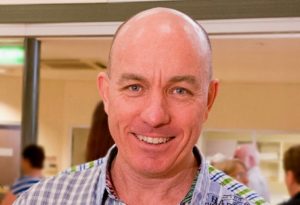
One of Flinders University’s leading experts in remote health has delivered a historic apology to Aboriginal and Torres Strait Islander Australians.
Professor Tim Carey, Director of Flinders’ Centre for Remote Health, made the apology on behalf of the Australian Psychological Society at its annual Congress this month.
His words received a standing ovation and generated overwhelming emotions for the people who were present. It is believed to be the first apology of its kind anywhere in the world, and has attracted international attention and applause.Professor Carey said he had been privileged to speak the words, which he hoped would promote reconciliation and help to improve the lives of Indigenous Australians.
“It was a tremendous privilege and honour to deliver the apology at the end of Professor Pat Dudgeon’s keynote address,” said Professor Carey.
“The response both nationally and internationally has been wonderful. The apology was developed through the combined efforts of the Indigenous Psychology Advisory Group of the Australian Psychological Society.
“It would be fantastic to see other health professions follow the lead of the Australian Psychological Society. The Board of the Australian Psychological Society are to be commended for initially endorsing and encouraging the development of the apology and then approving the final statement.”
Flinders University’s Poche Chair in Indigenous Health and Well-Being, Professor Dennis McDermott, said the apology had the potential to be a turning point.
“It’s very hard to overstate the importance of this apology delivered by Professor Tim Carey, which lays out how inappropriate psychology‘s assessment, diagnosis and treatment of Indigenous Australians has been,” said Professor McDermott
“As an Aboriginal psychologist, I’ve long chafed at mental health relying on a too-simple, bio-medical approach. It’s been nestled in a world-view that’s overly focussed on the individual, that fails to address ‘collective trauma’ – the contemporary consequences of violent colonisation, complex grief, cumulative stressors, the ‘stolen generations’ and the corrosive effects of racism.
“This apology opens the door to services working in more-holistic and less-fragmented ways. We also, now, look to see their quality assurance processes directly addressing racism and unconscious bias.
“A real positive is that work has already begun on ensuring psychologists’ training equips them to work in a culturally-safe and strengths-based manner.
“We’re now asking all health professionals to self-reflect and to listen to the person in front of them, who is most-likely trying to tell a difficult narrative – to listen deeply – Aboriginal way.”

